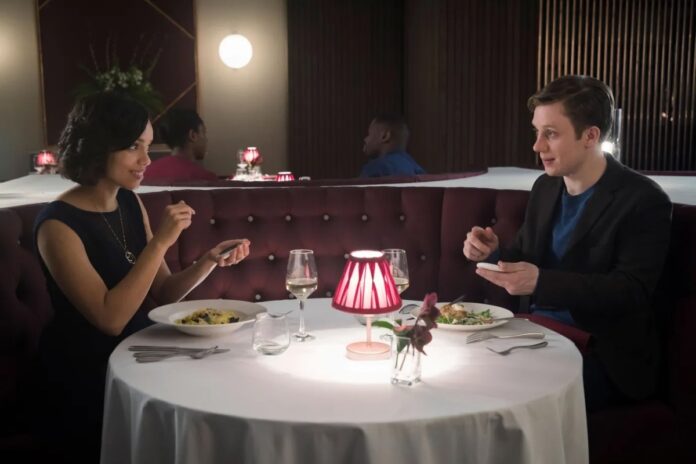Bumble founder and executive chair Whitney Wolfe Herd raised eyebrows this week with her comments about how AI might change the dating experience.
During an onstage interview, Bloomberg’s Emily Chang brought up bots posing as real people, or real people falling in love with bots, as examples of how AI might make online dating worse. Herd countered that Bumble’s goal is to use the technology to “help create more healthy and equitable relationships.”
For example, Herd said, in the “near future,” users could talk to an AI “dating concierge” about their insecurities, then the concierge could give them pointers on how to do better. And “if you want to get really out there,” Herd suggested there might even be a day when the concierge could help users find matches by going on dates with other concierges. If the bots have a good date, then their human counterparts get matched up, too.
The audience reacted with snickers, but Herd was undeterred: “No, no, truly. And then you don’t have to talk to 600 people. It will just scan all of San Francisco for you and say, ‘These are the three people you want to meet.’”
There’s been plenty of social media dunking since Herd’s remarks were written up in NBC News and elsewhere. The easiest critique? That it’s literally a plotline from “Black Mirror.”
Spoilers for a seven-year-old episode of a popular dystopian science fiction show (not to be confused with the other “Black Mirror” episode that tech companies currently want to make a reality): “Hang the DJ” begins in a mysterious, closed-off society that seems solely dedicated to finding the best pairing for its members. As our two leads cycle through one repetitive relationship after another, they keep pining for that magical first match; eventually, they flee the compound together, only to discover that they’ve been living in a simulation designed to test their romantic compatibility.
Here’s the thing, though: The episode actually has one of “Black Mirror”’s rare happy endings. We only see the very beginning of the first date between the “real” Amy and Frank, but there’s every indication that it will go well. So as a matchmaking tool, it seems to work!
If anyone has cause to complain, it’s the digital simulations we’ve been following for the past hour. They spend their entire existence trapped in a sterile world, forced to endure one awkward date after another, with no work, no friends, no relationships or meaning beyond the unending quest to find the perfect match. Then, when they finally escape, they’re confronted with the horrific revelation that their entire lives have been a lie. Seconds later, they evaporate into a digital mist.
So by all means, let bots go on dates with other bots. But don’t stop there: Let them continue their relationships for as long as they want, keeping them as serious or as casual as seems right. Let them date multiple bots, or stay single for a while, just to see how it feels. Let them break up and begin new relationships. Let them get jobs, start families. Let bots live their own lives!
Of course, this assumes we’re talking about full digital replicas who can capture their human models in all our flawed complexity. If they’re just janky chatbots based on bare bones profiles, then the whole dating thing probably won’t work.
Source link






